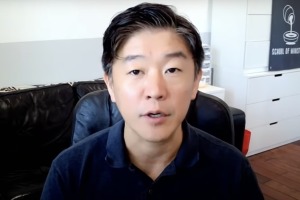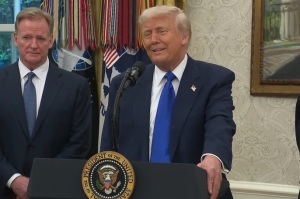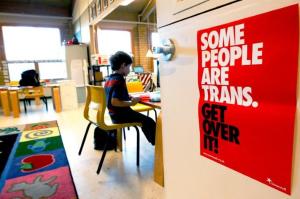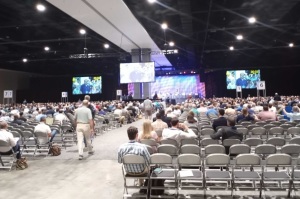Children with Down syndrome targeted for abortion in UK
Mother tells NHS horror stories of intense pressure to terminate
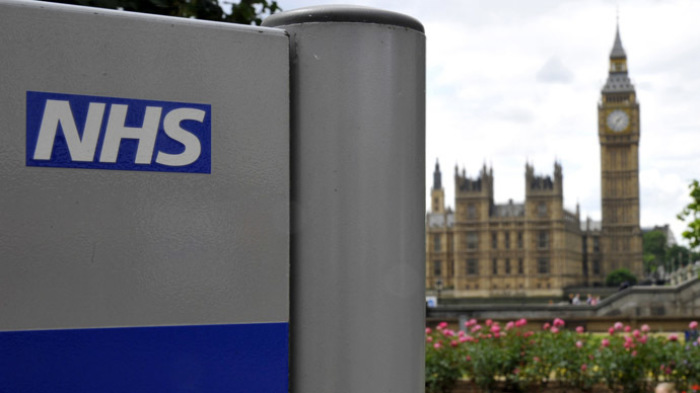
Political activist Heidi Crowter has sued the U.K.'s National Health Service for allowing the abortion of babies up to birth if they're diagnosed as having Down syndrome.
Crowter, a woman with Down syndrome, will take her case to the U.K.'s High Court, the Christian Institute reports.
Along with her fellow campaigner, Máire Lea-Wilson, she says that the U.K.'s laws discriminate against people like her by allowing them to be killed.
“The current law is unfair. It makes me feel like I shouldn’t exist, and that I’d be better off dead in the eyes of the law," she told The Telegraph.
“The policy basically says that it’s normal for a baby with Down syndrome to be terminated right up until birth.”
Nicola Enoch, who helps lead Positive about Down syndrome and trustees The Ups of Downs, told The Christian Post that the NHS pressures women to abort children like her son, Tom, who has Down syndrome.
“He’s completely nondiscriminatory. He takes things as they are. He doesn’t judge you by the clothes you wear or the car you drive. He says hello to people no one else speaks to and encourages others to do the same,” she told CP. “His tutor said he’s a breath of fresh air.”
The U.K.'s government-funded NHS uses prenatal testing to find out whether a baby has Down syndrome, said Enoch. Then, it frames the baby as a disaster for the mother.
“It’s the subliminal messages that we don’t even realize. The tone of the conversation,” she said. “That tone of ‘I’m sorry’ and ‘this baby is to be avoided.’”
Research conducted by Positive about Down syndrome showed that upon receiving news from the NHS that their baby had Down syndrome, 69% of pregnant women were immediately offered an abortion. If they said no, NHS officials would ask them again. And again. One woman was asked 15 times, the BBC reported.
Many women tell stories to Nicole of pressure from the NHS to end their babies' lives.
“It was a high chance result. The midwife said to me, ‘Your only option is to terminate,’” one mother said.
“‘It’s positive for Down syndrome,’ the nurse said. ‘It’s Friday, we’re closing soon, you’ve got 20 minutes to decide whether you want an abortion or not,’” another recalled.
“At 37 weeks pregnant, when I was being induced the following morning, I was told I still had options as to whether I would have my baby. If she was born not breathing or struggling to breathe, they were willing to not help my baby. They were willing to just leave her,” a third woman said.
Enoch said women shouldn't have to endure the NHS' culture that pressures women to abort their babies.
“It’s cheaper to terminate than for the child to live,” she said. “Children with Downs require extra support. Every child I know in education requires additional support. Some require extra medical support. People get sniffy about it, but it’s eugenics.”
As technology improves, testing for Down syndrome gets better, Enoch said. Although modern technology has given people with Down syndrome better lives in many ways, it also makes it easy to kill them before they're born.
“Improvements in the screening process has led to a decrease in the number of Down syndrome births due to a high rate of terminations,” an NHS report reads.
Enoch loves her son, Tom, but said that she would probably have been pressured into aborting him if she had tested him for Down syndrome. When they discovered Tom had Down syndrome, doctors saw the new baby as a mistake.
“It didn’t feel like ‘my baby’ anymore. There’s absolutely nothing wrong with Tom. It was everybody’s attitudes that were wrong,” she said.
With Tom in high school, people still ask Enoch if she had gotten a Down syndrome test during her pregnancy.
“If they stopped and thought, what they’re inferring is, ‘if you did, then maybe he wouldn’t be here,’” she said.
Tom taught Enoch that raising a child with Down syndrome requires the same self-sacrifice that raising any child requires.
“I came from the depths of despair to a far better place that I never would have been without Tom. I was always middle of the road, and now I’m higher. Parenting is about adjusting and accepting. That’s what relationships are about. Parenting a child with Down syndrome is like parenting any other child. You love them,” she said.
To save the lives of children like her son, Enoch supports Crowter's campaign to sue the British government for discrimination because it allows abortion of disabled babies up to birth. They are still seeking to raise $47,354.
















